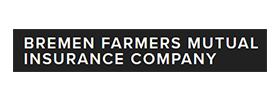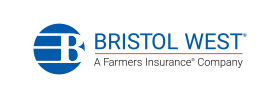‘Tis the season! The season for joy, the season great meals, the season for family—but not the season for an unexpected (and costly) liability claim against you and your household! From unattended candles catching on the curtains to guests slipping on icy pathways, the holidays are ripe with potential liabilities. To spare yourself a costly headache or the annoyance of having to file a claim through your home insurer, we’ve compiled some tips on protecting your home against holiday-related liabilities.
Residential Fire
Fire is single-handedly perhaps the largest holiday-related liability that exists, ranging from residential fires resulting from dry wood from live trees being used as décor to unattended candles catching on decorative drapes. We all love the décor in our homes come the holiday season, as they add a note of festive cheer and truly make the holidays feel like—well, the holidays. But you need to be aware of the risks to protect your home and household.
Candle fires alone increase up to 4x during the holidays, killing over 10 people and injuring 175. The holidays invite a lot of flame-related decorations, dry paper, and lumber—all of which, when mixed, spell out a recipe for disaster.
Here’s some tips to prevent a residential fire this holiday season.
Watch your candle usage
If using candles, keep them in sturdy, non-combustible holders. Never leave candles unattended, and extinguish them before leaving a room or going to bed.
Water your live trees
If you have a live Christmas tree, keep it well-hydrated to reduce its flammability. Check the water level daily, and dispose of the tree promptly after the holidays.
Watch your cooking
Stay vigilant when cooking holiday meals. Keep flammable items, such as kitchen towels and curtains, away from the stove, and never leave cooking unattended.
Get fire extinguishers ready
Ensure that fire extinguishers are accessible and in good working order. Know how to use them, and ensure family members and guests know their locations.
Slippery & Icy Pathways
If it’s looking like a white Christmas for you this year, then great! More fun for the whole family. Having snow on the ground just in time for the holidays can seem like a festive movie scene come to life but know that your snowy or icy walkway can be a liability!
If you’re expecting guests this holiday season, or even if you aren’t but may have neighbours passing by your home or delivery people leaving presents at your doorstep (or Santa?) it’s a good idea to stay on top of your pathway’s condition. From the sidewalk in front of your home to your driveway and your front steps, make sure to shovel and salt accordingly to ensure the path leading up to your door is as clear and safe as possible. While ice is melting, consider marking any slippery spots. And, if you’re expecting elderly guests or guests with mobility issues, lend them a hand and help them to your front door to ensure they get there safely!
Serve Alcohol with Caution
Planning to serve booze this holiday season? There’s a lot of reasons why households might choose to incorporate liquor as part of their celebrations, and to each their own. However, consuming alcohol can seriously impair people’s judgement, and over imbibing may result in your party guests engaging in potentially risky behaviors, like unsafe cooking, impaired driving, or other activities that could result in accidents or injuries – which you, as the party host and server of alcohol, could be held liable for.
Alcohol can be the cause of numerous liability claims, from contributing to an increased risk of falls (or even fights, with the wrong crowd), an increased incidence of drunk driving, legal consequences, cooking mishaps, and more.
In order to mitigate these risks, individuals drinking during the holiday festivities need to manage their intake responsibly. However, as the host, you’re technically legally liable for their wellbeing, so make sure you’re providing alternatives for getting home such as designated drivers, cabs, or Uber. You should also encourage moderation and responsible drinking for all your guests.
Your Home Insurance and Holiday Liabilities
Although we’d like to do our best to prevent every possible mishap and ensure your holiday season goes off without issue, sometimes things happen. When they do, it’s good to know that you’re protected. As the host of your upcoming holiday festivities, make sure to cover all corners and review with your policy to ensure you have adequate coverage. Be mindful of unattended flames, paper-y or flammable décor, slippery walkways, and if you’re planning to make alcohol a part of your get-together, make sure that everyone who indulges does so responsibly and has a safe way to make it home!
And, as we roll into December, the team here at AHI Group wants to wish you happy holidays! However you choose to celebrate (and even if you don’t) we hope that you and your household stay safe, enjoy your time with your loved ones, and if you ever have any questions about your policy or what it covers feel free to reach out and discuss with one of our agents.



























